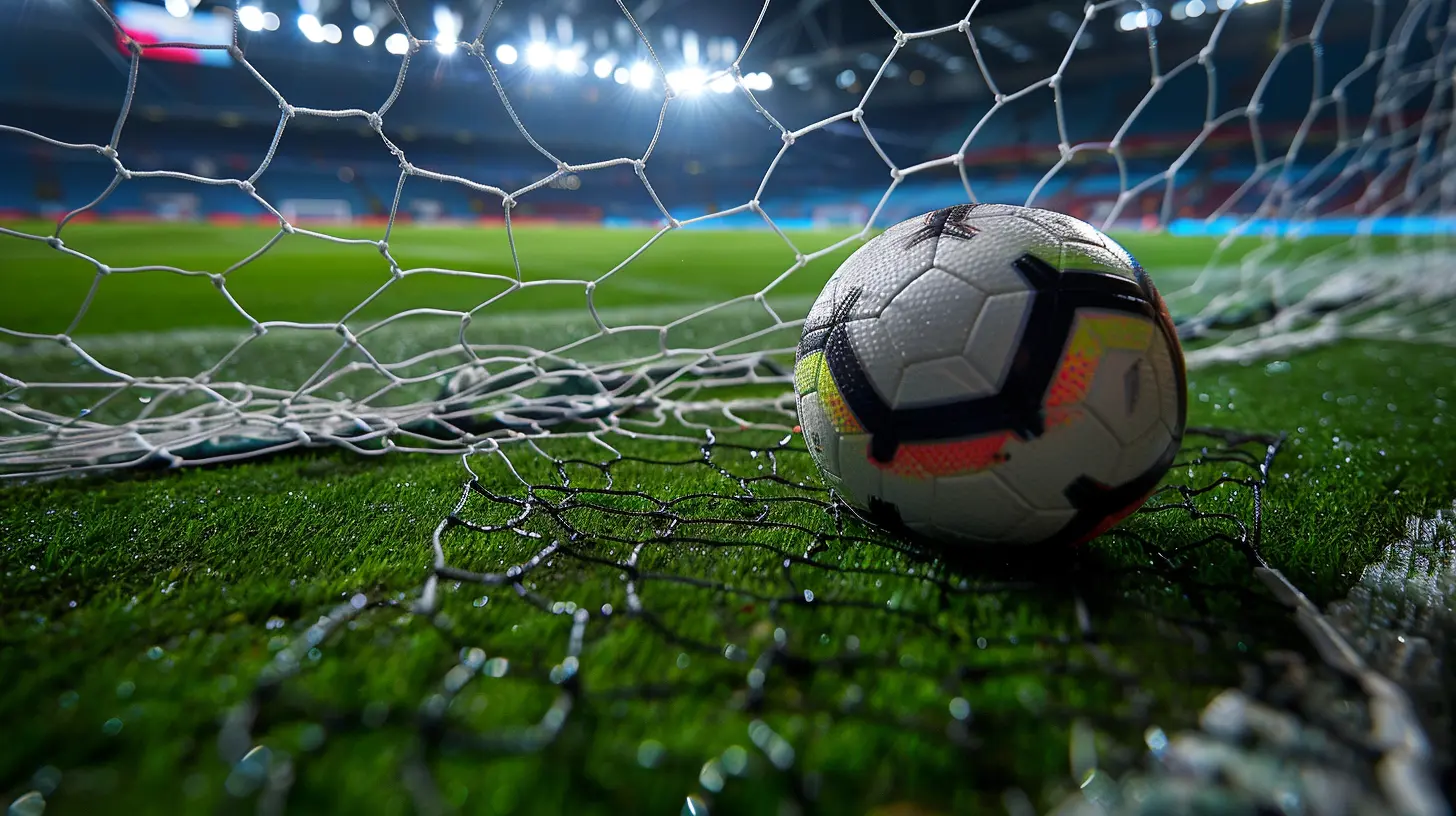How One Team’s Tactical Discipline Overcame the Odds
24 October 2025
Sports, by nature, are unpredictable. One moment, you're cheering on a team that's favored to win, and the next, you're biting your fingernails as the underdogs take control. There’s a certain magic when a team defies all expectations, and that magic often comes down to one thing: tactical discipline.
But what exactly is tactical discipline? Is it just about sticking to a game plan, or is there more to it? In this article, we’re going to dive deep into how one team’s relentless focus, organization, and strategic execution allowed them to overcome the odds. And, spoiler alert: It’s not just about individual talent or raw athleticism. It’s about the brain as much as it is about the brawn.

The Underdog Story: A Tale as Old as Time
We’ve all seen it before. A team, written off by the pundits, goes up against a favorite. The odds are stacked against them. The commentators have already made their predictions. But then, something incredible happens. The underdog, through sheer will and precision, pulls off the impossible.Think about the classic moments in sports history where this has happened. Leicester City winning the Premier League in 2016, Greece shocking the world in Euro 2004, or the U.S. Men’s Ice Hockey team at the 1980 Winter Olympics. What do all these teams have in common? Tactical discipline.
While talent is crucial, it’s not always the deciding factor. Many times, it’s about how well a team can stick to its game plan, stay organized, and adapt to situations as they unfold. This is where tactical discipline plays an essential role.
Let’s explore how one team’s tactical discipline allowed them to punch above their weight and shock the world.

The Building Blocks of Tactical Discipline
Before we get into the nitty-gritty of how tactical discipline wins games, let’s break down what it actually is. Some might think it’s simply about following instructions, but there’s way more to it than that. It’s about having a structured approach to every phase of the game, ensuring that each player knows their role and sticks to it, no matter the situation.1. Sticking to the Game Plan
At the core of tactical discipline is the ability to stick to the game plan. Coaches spend hours analyzing the opposition, thinking about their strengths, weaknesses, and how best to counter them. But a game plan is only as good as the team’s ability to execute it.Let’s take an example. Imagine a soccer team that knows they’re up against a particularly dangerous attacking side. Their plan? Play defensively, sit deep, and hit on the counter. This requires every player to be laser-focused. One slip-up, one moment where a player gets pulled out of position, and the opposition can pounce.
But when a team sticks to the plan, magic happens. They frustrate their opponents, forcing mistakes, and then capitalize on those moments of weakness. It’s not flashy, but it’s effective. It’s like playing a game of chess where every move counts.
2. Communication Is Key
Tactical discipline isn’t just about knowing your role; it’s about constant communication. Whether it’s on the football pitch, basketball court, or hockey rink, players need to talk to each other. Communication ensures that everyone is aware of what’s happening around them. It’s the glue that holds everything together.Imagine you’re a defender in a soccer game. The opposing team has a star striker who loves to drift out wide. If you don’t communicate with your fellow defenders, you could easily lose track of him. One moment he’s there, and the next, he’s in on goal.
Teams that excel in tactical discipline always have players talking to each other, pointing out danger, and making sure that everyone is on the same page. It’s like driving a car—if you’re not constantly checking your mirrors and talking to your co-passengers, you’re going to miss something important.
3. Adaptability: Flexibility Within Structure
While sticking to a game plan is crucial, tactical discipline also requires adaptability. No game ever unfolds exactly as planned. The opposition might change their tactics mid-game, or you might suffer an injury that forces a substitution. When this happens, disciplined teams don’t panic. They adjust.For example, in basketball, if a team is playing zone defense but the opposition starts hitting three-pointers at will, a disciplined team will recognize this and switch to man-to-man defense. They adapt within the framework of their overall structure.
It’s like being in a storm. You don’t abandon the ship—you adjust the sails.

Case Study: How Tactical Discipline Can Turn the Tide
Now, let’s look at a real-world example of tactical discipline in action. We’ll take a deep dive into a famous soccer match that perfectly illustrates how a team’s strategic focus allowed them to overcome the odds.The Match: Chelsea vs. Barcelona – 2012 UEFA Champions League Semifinal
In 2012, Chelsea faced Barcelona in the semifinals of the UEFA Champions League. Barcelona, led by Lionel Messi and considered one of the greatest teams of all time, were the heavy favorites. Chelsea, on the other hand, were seen as a team that was past its prime. The odds were overwhelmingly in Barcelona’s favor.Chelsea’s game plan was simple: defend, defend, and defend some more. They knew they couldn’t match Barcelona’s attacking prowess, so they didn’t even try. Instead, they focused on one thing—sticking to their defensive structure and hitting on the counter.
First Leg: A Masterclass in Patience
In the first leg at Stamford Bridge, Chelsea executed their plan to perfection. Barcelona dominated possession, as expected, but Chelsea remained disciplined. They didn’t chase the ball mindlessly. Instead, they stayed organized, with every player knowing their role. They frustrated Barcelona, who couldn’t find a way through.Then, in a rare moment of opportunity, Chelsea struck on the counter. Didier Drogba scored the only goal of the game, giving Chelsea a 1-0 lead to take into the second leg.
Second Leg: Chaos, Drama, and Tactical Discipline
The second leg at Camp Nou was an even bigger test. Barcelona scored two quick goals, and Chelsea were reduced to ten men when John Terry was sent off. It looked like the end for Chelsea. But what followed was one of the greatest displays of tactical discipline in football history.Despite being a man down, Chelsea stuck to their plan. They defended deep, stayed compact, and communicated constantly. Barcelona threw everything at them, but Chelsea remained calm. Then, in the dying moments of the game, with Barcelona pushing for a third goal, Chelsea hit on the break once again. Fernando Torres scored to send Chelsea to the final.
The Outcome: Tactical Triumph
Chelsea’s victory wasn’t about individual brilliance. It wasn’t about flashy skills or breathtaking goals. It was about discipline. It was about sticking to a plan, communicating, and adapting to the chaos around them. It was a tactical triumph, and it showed the world what a team can achieve when every player buys into the system.
Why Tactical Discipline Matters More Than Ever
In today’s world of sports, where athletes are faster, stronger, and more skilled than ever before, the importance of tactical discipline has only grown. Teams can no longer rely solely on talent to win. They need to be organized, focused, and ready to adapt.Tactical Discipline Levels the Playing Field
One of the best things about tactical discipline is that it levels the playing field. It allows teams with less individual talent to compete against stronger opponents. It’s the great equalizer. Just like in chess, where a well-thought-out strategy can defeat a more aggressive opponent, tactical discipline can help an underdog overcome a favorite.Mental Toughness Is Key
Ultimately, tactical discipline isn’t just about physical execution. It’s about mental toughness. It’s about staying focused for 90 minutes, 48 minutes, or however long the game lasts. It’s about not getting caught up in the moment and sticking to the plan, even when things aren’t going your way.The teams that can master this mental aspect are the ones that consistently punch above their weight. They might not have the biggest stars or the flashiest plays, but they know how to win.
Conclusion: The Power of Tactical Discipline
In sports, as in life, sometimes the key to success isn’t talent or luck—it’s discipline. The ability to stick to a plan, communicate, and adapt to changing circumstances can make all the difference. Whether it’s a soccer team defending against the odds or a basketball team adjusting their defense, tactical discipline is often the secret ingredient that separates the winners from the losers.So, the next time you’re watching an underdog team take on a giant, pay attention to how they play. Watch how they stay organized, how they communicate, and how they adapt to the game’s twists and turns. You might just witness tactical discipline in action.
all images in this post were generated using AI tools
Category:
Game AnalysisAuthor:

Frankie Bailey
Discussion
rate this article
1 comments
Mandy Smith
Incredible story! This team’s unwavering tactical discipline demonstrates that with focus and determination, obstacles can be transformed into opportunities. Their journey inspires us all to believe in the power of teamwork and resilience!
October 26, 2025 at 8:09 PM

Frankie Bailey
Thank you for your kind words! I'm glad the team's journey resonated with you and highlights the strength of teamwork and resilience.


